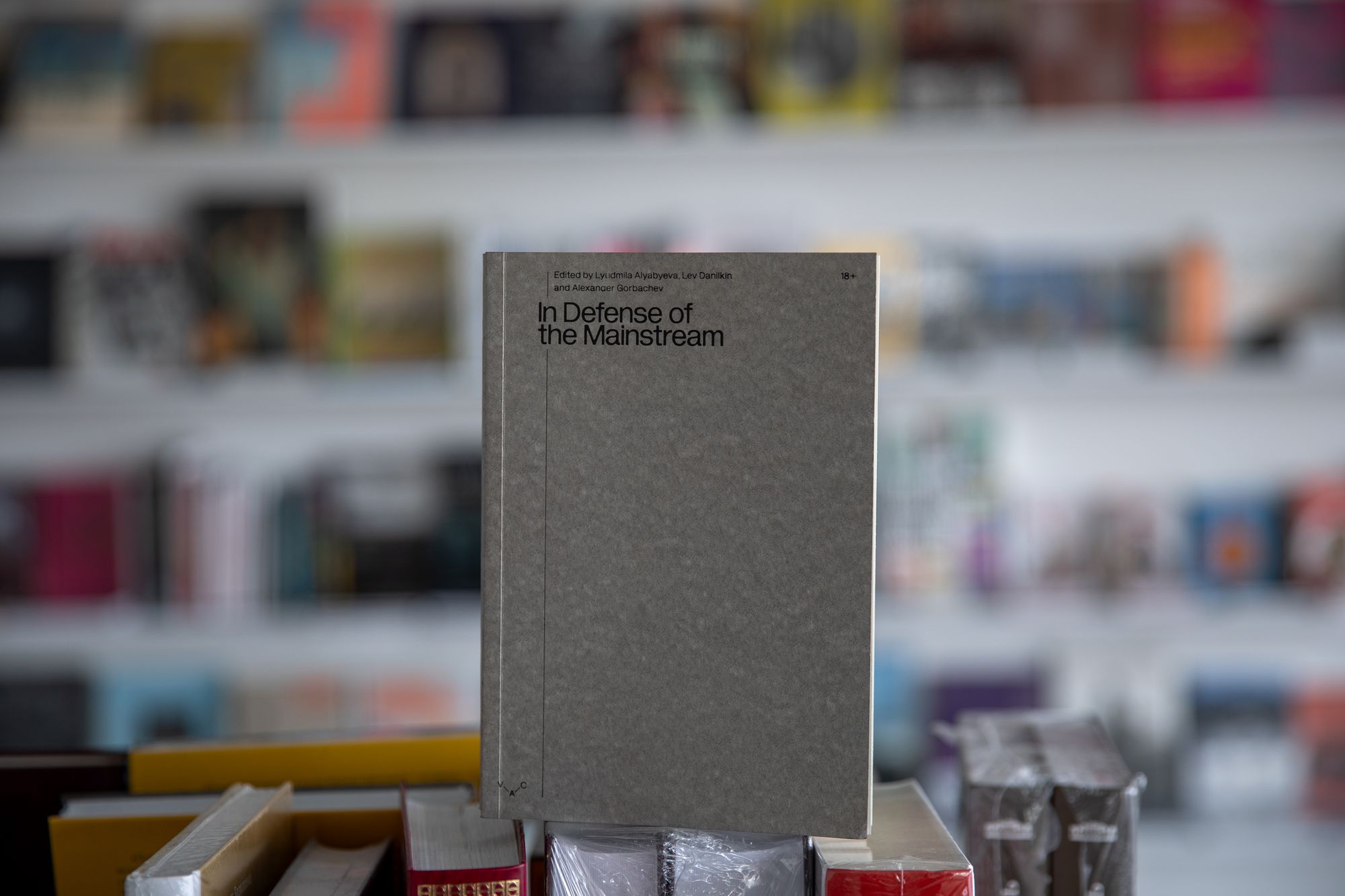In Defense of the Mainstream
A collection of texts on mass culture, politics, and fashion in 1990s Russia.
НАСТОЯЩИЙ МАТЕРИАЛ (ИНФОРМАЦИЯ) ПРОИЗВЕДЕН ИНОСТРАННЫМИ АГЕНТАМИ ГОРБАЧЕВЫМ АЛЕКСАНДРОМ ВИТАЛЬЕВИЧЕМ, ГОРАЛИК ЛИНОР‑ДЖУЛИЕЙ (ГОРАЛИК ЮЛИЕЙ БОРИСОВНОЙ) ЛИБО КАСАЕТСЯ ДЕЯТЕЛЬНОСТИ ИНОСТРАННЫХ АГЕНТОВ ГОРБАЧЕВА АЛЕКСАНДРА ВИТАЛЬЕВИЧА, ГОРАЛИК ЛИНОР‑ДЖУЛИИ (ГОРАЛИК ЮЛИИ БОРИСОВНЫ).
In Defense of the Mainstream describes the “transitional decade” of the 1990s in Russia, a period that largely determined the future course of life and culture in the country. The book’s approach might be described as a kind of cultural archeology: from a historical distance, its authors examine established and cliched images of Russia, many of which are still encountered today.

In Defense of the Mainstream is divided into three parts: “Image, ” “Entertainment, ” and “Document, ” edited and compiled by the culturologist Lyudmila Alyabyeva, the journalist Alexander Gorbachev, and the writer and critic Lev Danilkin respectively. The book raises the question of whether culture is capable of altering the world and determining the collective perception of a particular historical period.
What caught my interest most when I read the whole collection was that the 1990s were a lot about phantoms. Nothing was what it seemed. Maybe, that’s why the Twin Peaks series was so incredibly popular in Russia in the 1990s, with all those amazing philosophical-surreal discussions of each episode in Russian business newspapers. The 1990s were a time of smoke and mirrors—if you looked closely at something it turned into something else, it wasn’t what it had seemed to be. Take Mikhail Krug, for example: he wasn’t really singing about the underworld and prison culture of his day; he invented his own language using a dictionary of criminal slang from the 1920s. So he wasn’t organic, he was an absolute construct.
– Alexander Gorbachev, excerpt from “Introduction: In Defense of the Mainstream”